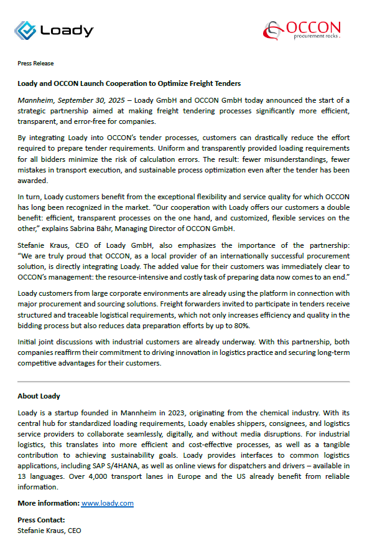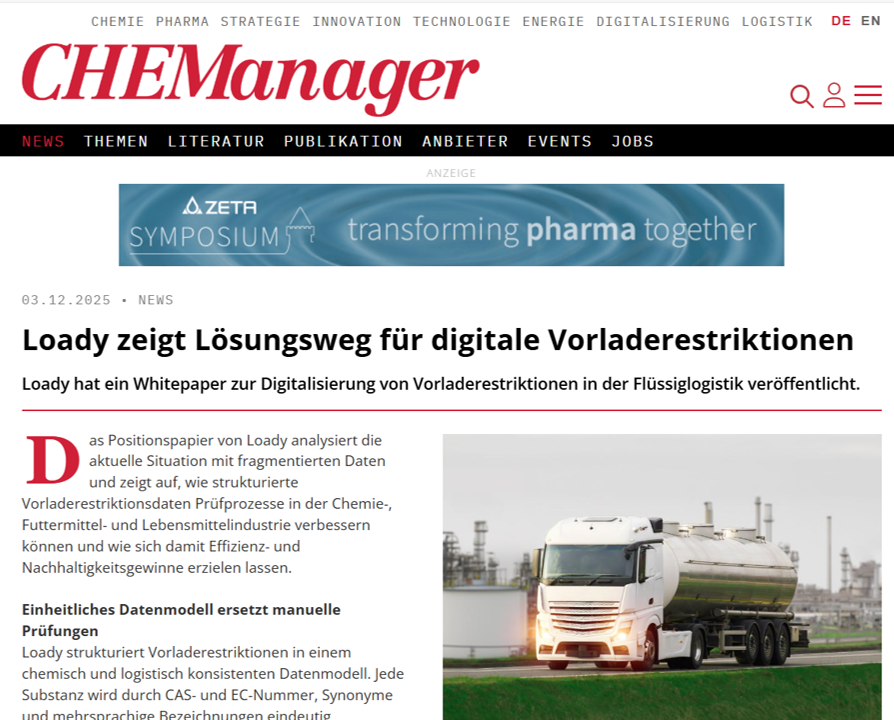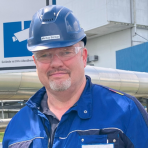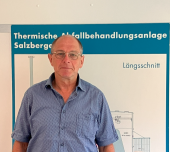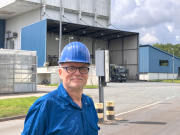Loady and OCCON today announced the start of a strategic partnership aimed at making freight tendering processes significantly more efficient, transparent, and error-free for companies.
By integrating Loady into OCCON’s tender processes, customers can drastically reduce the effort required to prepare tender requirements. Uniform and transparently provided loading requirements for all bidders minimize the risk of calculation errors. The result: fewer misunderstandings, fewer mistakes in transport execution, and sustainable process optimization even after the tender has been awarded.
In turn, Loady customers benefit from the exceptional flexibility and service quality for which OCCON has long been recognized in the market. “Our cooperation with Loady offers our customers a double benefit: efficient, transparent processes on the one hand, and customized, flexible services on theother,” explains Sabrina Bähr, Managing Director of OCCON GmbH.
Stefanie Kraus, CEO of Loady GmbH, also emphasizes the importance of thepartnership:
“We are truly proud that OCCON, as a local provider of an internationally successful procurement solution, is directly integrating Loady. The added value for their customers was immediately clear to OCCON’s management: the resource-intensive and costly task of preparing data now comes to an end.”
Loady customers from large corporate environments are already using the platform in connection with major procurement and sourcing solutions. Freight forwarders invited to participate in tenders receive structured and traceable logistical requirements, which not only increases efficiency and quality in the bidding process but also reduces data preparation efforts by up to 80%.
Initial joint discussions with industrial customers are already underway. With this partnership, both companies reaffirm their commitment to driving innovation in logistics practice and securing long-term competitive advantages for their customers.
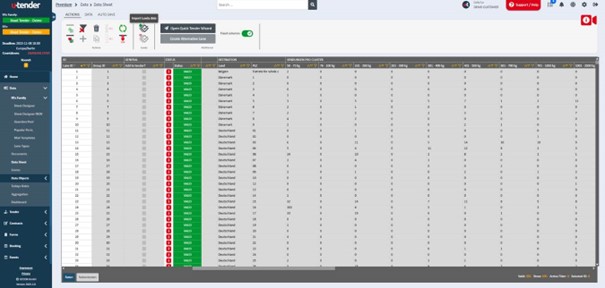
About Loady
Loady is a startup founded in Mannheim in 2023, originating from the chemical industry. With its central hub for standardized loading requirements, Loady enables shippers, consignees, and logistics service providers to collaborate seamlessly, digitally, and without media disruptions. For industrial logistics, this translates into more efficient and cost-effective processes, as well as a tangible contribution to achieving sustainability goals. Loady provides interfaces to common logistics applications, including SAP S/4HANA, as well as online views for dispatchers and drivers – available in 13 languages. Over 4,000 transport lanes in Europe and the US already benefit from reliable information.
More information at: www.loady.com
Press contact:
Stefanie Kraus, CEO
+49 (0) 151 2371 2351
stefanie.kraus@loady.com
About OCCON
OCCON GmbH is an independent, owner-managed consulting and software company with offices in Ludwigshafen, Mannheim, and Riga. It supports manufacturing and trading companies worldwide across various industries in the fields of procurement and logistics. The company stands for high service quality, customized concepts, and innovative solutions. Through its in-house developed platform u-tender, OCCON manages an annual procurement volume of USD 9 billion.
More information at: www.occon.de
Press contact:
Sabrina Bähr, Managing Director
+49 (0) 621 5968 3262-10
s.baehr@occon.de




